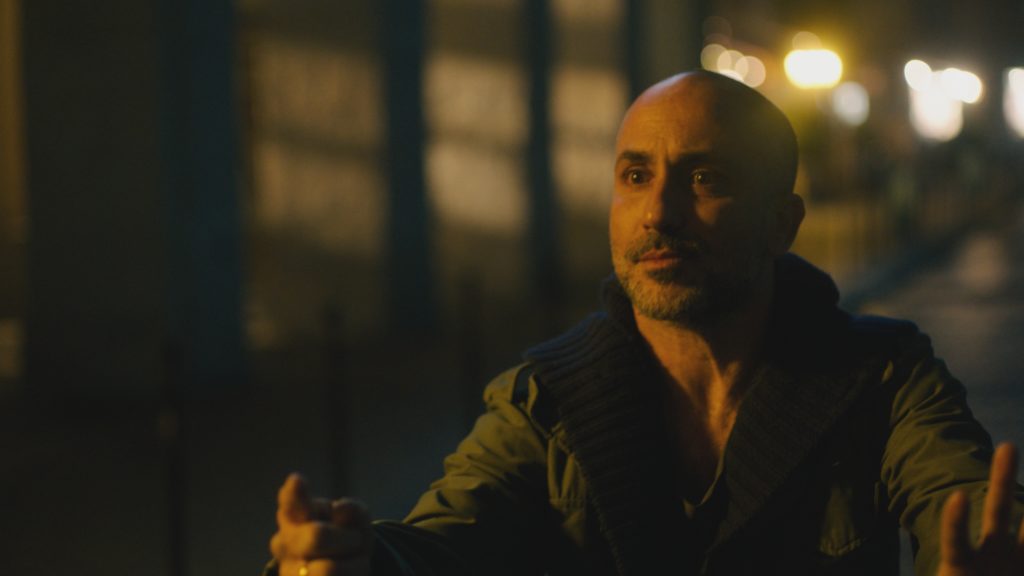
Chief among the many odd choices made by the creators of “The Attaché,” an Israeli dramatic series from the producers of “Shtisel,” is the show’s title.
“The Attaché,” available now with English subtitles on Acorn TV, is not a political drama, nor a diplomatic farce. The title might suggest a workplace comedy-drama or an action-packed spy show. At the very least, it would suggest that the attaché herself would be the main character. Even the title sequence suggests a fast-paced thriller.
But “The Attaché” is none of those things, and the attaché, Annabelle Cohen (Héloïse Godet), is the show’s secondary focus. Eli Ben David, who created, wrote and directed the 10-episode first season, also stars as Annabelle’s husband, Avshalom. It is with Avshalom, the attaché’s husband, that “The Attaché” spends most of its time.
“The Attaché” is a show about a fraying marriage, a fish-out-of-water tale that builds in suspense and leaves you concerned with the fate of its principal characters. Will they stay in Paris past Annabelle’s one-year fellowship as the aliyah attaché in the Israeli embassy? Can their marriage survive the decision?
The chemistry between Ben David and Godet is enough to sustain everything on its own. The setting is beautiful, and the writers tackle vital questions in Hebrew, French, Arabic and English. What slows everything down are the thematic feints, beginning with that misdirection of a title: half-gestures toward ideas, plotlines and people that aren’t fully explored.
“The Attaché” tells the story of Annabelle and Avshalom, an Israeli couple that moves to Paris for one year with their young son, Uri (Ilay Lax). Annabelle, a native, is delighted to be home, nearer to her family than she’s been in years, and with an eye toward making the move permanent. Avshalom, a successful musician back in Israel, is sullen and depressed in his new country, unable to pick up the language, without much to do besides dither on the piano at a synagogue that he loathes and pine for his old life.
His uncertain place is felt most acutely in the aftermath of a terrorist attack, when his dark skin and inability to speak French leads to his violent arrest. While Avshalom is being thrown in jail, his wife and family are being protected by imposing French-Israeli bodyguards; thus, the tone is set for their respective relationships to their new home.
The terrorist attack and its aftermath are based on the 2015 Bataclan killings, and Ben David has said that the series is partially based on his experience living in France around that time. However, by the end of the third episode, Avshalom’s paranoia regarding the arrest and the attacks are more or less dropped.
Annabelle is a budding diplomat of Ashkenazi stock, the daughter of wealthy, philanthropic, etiquette-minded snobs; Avshalom is a Metallica-underwear-wearing musician of Moroccan descent, and his father displays a coarseness that his counterparts barely tolerate. Avshalom can speak Arabic, but not French; vice versa for Annabelle.
They’re able to split the difference, less push-and-pull than give-and-take. Avshalom goes to buy a tuxedo for an embassy event when Annabelle asks him to, and he refers to their be-sandaled wedding. It works.
Still, brazen elders like Annabelle’s parents (Florence Bloch and Patrick Braoudé) and a foul-mouthed Algerian-Jewish bigot that they invite for dinner (Jean-Louis Tribes) aren’t shy about pointing out the possibly irreconcilable differences that Annabelle and Avshalom can’t or won’t acknowledge.
She grows suspicious of Avshalom’s Arab friend, a cafe owner named Said (Karim Saidi), after the terrorist attack, and Avshalom seems to have it out for a young refugee brought to dinner by Annabelle’s parents. Avshalom is protective of his even darker-skinned father, Ovadya (Gabi Amrani), who himself displays callous cruelty toward Arabs.
All of this produces knotty questions of race, ethnicity and class that give the show some weight.
Avshalom and Annabelle fight and make up, then repeat. There’s a heart attack, a false pregnancy, a hospitalized parent, a lost child, two thefts, strained friendships, two dramatic firings, near-infidelities, tense dinners, a racist attack by a far-right gang and a bizarre political stunt by a far-left group. It’s a lot of drama for 10 30-minute episodes, and the accumulation of store-brand narrative tricks blend some of the episodes together.
But a fine score and quick-cut editing keeps things from dragging too much and, in the end, “The Attaché” is worth the price of admission. It’s a small, compelling story about a couple’s struggle to adapt to their new home, however saddled with over-the-top dramatic ballast it may be.
[email protected]; 215-832-0740



